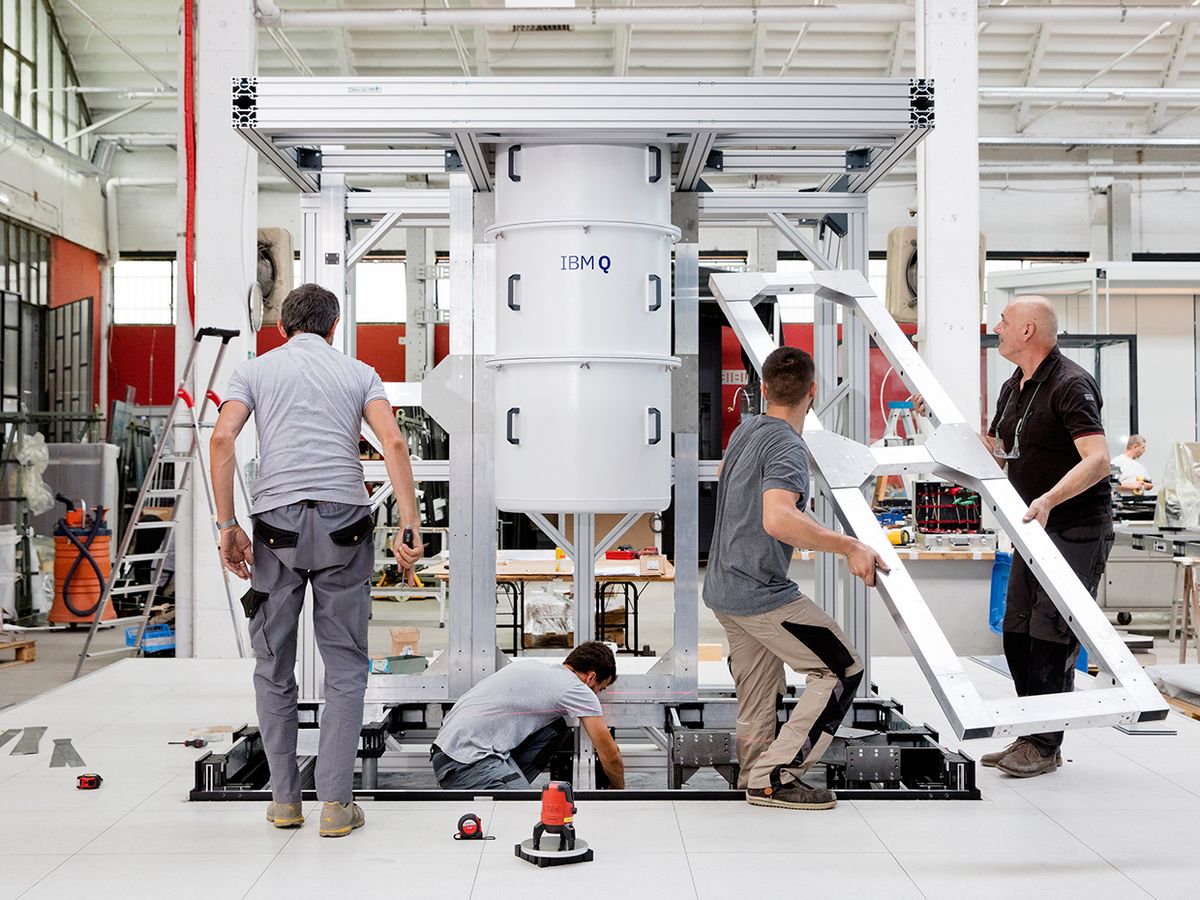
Our romance with new technologies always seems to follow the same trajectory: We are by turns mesmerized and adoring, disappointed and disheartened, and end up settling for less than we originally imagined. In 1954, Texas Instruments touted its new transistors as bringing “electronic ‘brains’ approaching the human brain in scope and reliability” much closer to reality. In 2000, U.S. president Bill Clinton declared that the Human Genome Project would lead to a world in which “our children’s children will know the term cancer only as a constellation of stars.” And so it is now with quantum computing.
The popular press is awash with articles touting its promise. Tech giants are pouring huge amounts of money into building prototypes. You get the distinct impression that the computer industry is on the verge of an imminent quantum revolution.
But not everyone believes that quantum computing is going to solve real-world problems in anything like the time frame that some proponents of the technology want us to believe. Indeed, many of the researchers involved acknowledge the hype has gotten out of control, cautioning that quantum computing may take decades to mature.
Theoretical physicist Mikhail Dyakonov, a researcher for many years at Ioffe Institute, in Saint Petersburg, Russia, and now at the University of Montpellier, in France, is even more skeptical. In “The Case Against Quantum Computing,” he lays out his view that practical general-purpose quantum computers will not be built anytime in the foreseeable future.
As you might expect, his essay ruffled some feathers after it was published online. But as it turns out, while his article was being prepared, a committee assembled by the U.S. National Academies of Sciences, Engineering, and Medicine had been grappling with the very same question.
The committee was to provide “an independent assessment of the feasibility and implications of creating a functional quantum computer capable of addressing real-world problems....” It was to estimate “the time and resources required, and how to assess the probability of success.”
The experts who took up the challenge included John Martinis of the University of California, Santa Barbara, who heads Google’s quantum-hardware efforts; David Awschalom of the University of Chicago, who formerly directed the Center for Spintronics and Quantum Computation at UCSB; and Umesh Vazirani of the University of California, Berkeley, who codirects the Berkeley Quantum Information and Computation Center.
To their credit, in their report, released in December, they didn’t sugarcoat the difficulties. Quite the opposite.
The committee concluded that “it is highly unexpected” that anyone will be able to build a quantum computer that could compromise public-key cryptosystems (a task that quantum computers are, in theory, especially suitable for tackling) in the coming decade. And while less-capable “noisy intermediate-scale quantum computers” will be built within that time frame, “there are at present no known algorithms/applications that could make effective use of this class of machine,” the committee says.
Okay, if not a decade, then how long? The committee was not prepared to commit itself to any estimate. Authors of a commentary in the January issue of the Proceedings of IEEE devoted to quantum computing were similarly reticent to make concrete predictions. So the answer is: Nobody really knows.
The people working in this area are nevertheless thrilled by recent progress they’ve made on proof-of-concept devices and by the promise of this research. They no doubt consider the technical hurdles to be much more tractable than Dyakonov concludes. So don’t be surprised when you see their perspectives appear in Spectrum, too.
This article appears in the March 2019 print issue as “Quantum Computing’s Prospects.”
